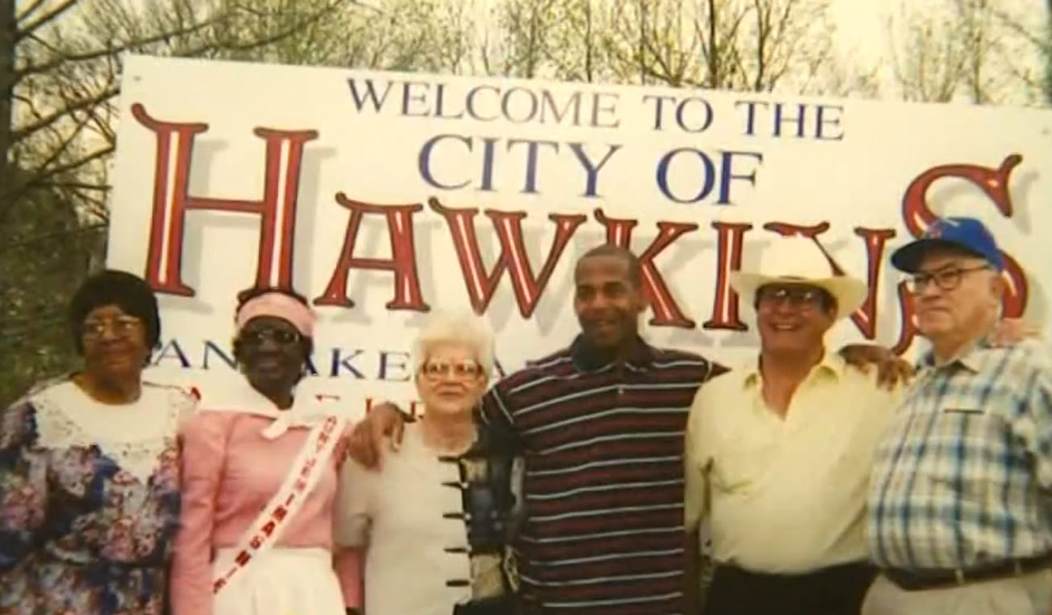Quaker Oats announced last week that Aunt Jemima would no longer be the face and brand of its pancake mix. The move was mostly met with befuddlement, as protesters had not publicly targeted the flapjack brand yet.
The nation soon learned that the name, “Aunt Jemima,” was based on a character in a minstrel show from 1889. The men who performed the song “Old Aunt Jemima,” were wearing blackface. Unlike Virginia Gov. Northam’s (D) blackface (or is he the one in the hood?), or Jimmy Kimmel’s and Jimmy Fallon’s later uses of blackface, no one now living ever saw the 1889 minstrel show. Minstrel shows themselves have a complex history, including the wildly racist as well as offering avenues for Black Americans to become celebrated entertainers. Most Americans of all backgrounds and generations probably saw Aunt Jemima as the face and name of a brand they relied on for a tasty breakfast, unaware of the connection to minstrel shows.
Nancy Green brought the Aunt Jemima character to life at the 1893 World’s Columbian Exhibition, and soon enough she’d helped establish a major American brand. That was quite an achievement for a black woman who’d been born a slave in Kentucky. Not only was she free, America would make her famous, and products with her face on them would be in just about every kitchen in the country. Green was an overcomer who used her position and the money it paid her to become an activist and a Christian missionary when she moved to Chicago.
Green died in a car accident in 1923. Quaker bought the Aunt Jemima brand in 1925.
There were other women who represented the Aunt Jemima character, and one of them lived in Hawkins, Texas. Her name was Lillian Richard.
According to her family, Richard made a good living portraying Aunt Jemima all over Texas for more than two decades, up to 1948. Hawkins’ Mayor Pro Tem Clara Kay, who is black, opposes Quaker’s decision to change the brand:
“I think that that legacy that she employed a long time ago grew up with me,” said Hawkins Mayor Pro-Tem Clara Kay. “I want to say I could never remember my mother ever making beside her own was Aunt Jemima flapjacks.”
Kay, who is African American, said she did not know Richard personally, but she did know her family. Kay says changing the brand hurts Hawkins.
“I’m not speaking entirely of the Black community or the Caucasian community,” Kay said. “I’m talking about all of us in and around our community, in the Fouke area, as well as in our city that knew of the descendants of Ms. Lillian Richard.”
In 1995, the Texas Legislature named Hawkins the “Pancake Capital of Texas” honoring Richard for her 23-year career portraying Aunt Jemima. Near Hawkins, the state placed a historical marker hailing Richard in 2012.
Richard’s family in Hawkins also oppose the brand change, as it erases their family legacy.
Bessie Peeples, who is also African American, grew up in Fouke and learned about Richard growing up. Peeples says she is proud of Richard portraying Aunt Jemima.
“I’m proud of the fact that back during that time, she was a Black woman,” said Peeples. “And I understand that she is just one of the faces of Aunt Jemima. But she made it a career, and I associated it with authenticity.”
And overcoming. Nancy Green and Lillian Richard never met, but they both portrayed Aunt Jemima and overcame a lot. Both Peebles and Kay say that rather than seeing Aunt Jemima as racist, they see the image and Lillian Richard’s portrayal as an inspiration and want her to stay on the pancake mix box.









Join the conversation as a VIP Member